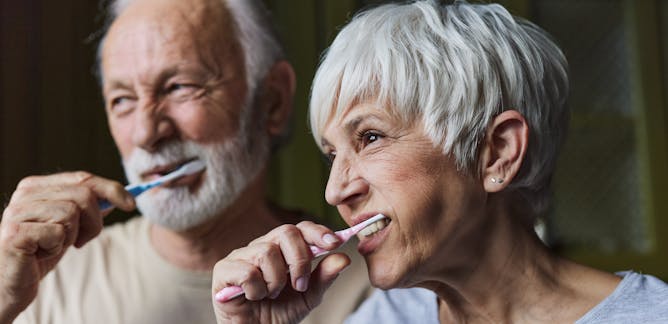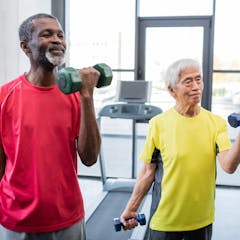
Articles on Older people
Displaying 1 - 20 of 129 articles

There is ample evidence that poor oral health plays a role in many chronic diseases.

Family caregivers who have stronger support networks and positive communication with loved ones tend to be more resilient.

You’re worried and you want to see them well cared for. You’ve tried to talk to them about aged care but been met with swift refusal. Now what?

Elder abuse is common and can be devastating. New research has uncovered four key reasons older people do not seek the help they need with the abuse.

Could teenagers get on with older people and vice versa? Turned out, they could. And both flourished.

Gays, lesbians and other sexual minorities can face significant economic challenges with age.

It’s long been known that exercise helps maintain strength and agility as we age. New research points to the importance of exercise type in supporting cognitive health in the latest decades of life.

Children absorb these stereotypes from a young age. And ageism is all around us.

An ageing population is caught in a perfect storm of rising house prices and rents, falling home ownership rates, mortgage debt carried into retirement, insecure rentals and a lack of social housing.

The law changed older adults’ caregiving behavior because their children became more able to take paid time off work to care for their own newborns.

This is an important and complex decision. It can affect your income, wealth, means-tested aged care fee, and bequests. Here are some things to consider before you decide.

Increasing the number of older people with both Medicaid and Medicare would mean fewer of them would be forced to skimp on the care and treatment they need.

People living with dementia often become more confused in the late afternoon and into the night. Why, and what can we do about it?

If Congress and the White House fail to take action, Social Security beneficiaries would see a sudden 23% cut in their monthly checks in 2034.

To combat the decline in immunity as we age, specific boosters are available for people aged over 65. Here’s how they work, and why they are needed.

Republicans are pressing for policy changes based on a misconception that hardly anyone who gets help buying groceries with Supplemental Nutrition Assistance Program benefits is employed.

Lifestyle factors like physical activity, diet and sleep can lower the ‘biological age’ of your cells and tissues and reduce age-related physical decline.

It’s never too late to start.

More than 41 million people rely on the Supplemental Nutrition Assistance Program to buy their groceries. When the COVID-19 pandemic began, the program ramped up.

A study of medical costs and income losses found that those who can least afford to pay for health care and miss out on their paychecks rack up the biggest bills.
